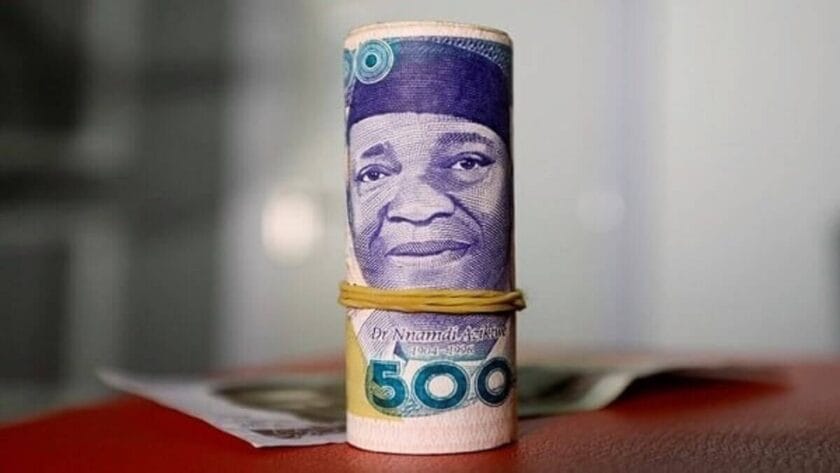Bond Market Down 26% on CBN Hawkish Balance Sheet Policy
The Nigerian bond market is effectively in a bear market – down by 26% from the peak attained in December 2020. Noting the tighten liquidity condition in the financial system, analysts at Chapel Hill Denham said they are expecting the bearish sentiment to extend into Q2-2021.
Analysts said bond market bearish performance was driven by a trifecta of factors, including hawkish balance sheet policy of the CBN, indicated by the issuance of special bills and increase in the bellwether one-year open market operations stop rate by 420 basis point to 10.1% from 5.9% in December.
This was supported by considerably lower liquidity in the money market due to a relatively smaller volume of net-open market operations maturity and deficit financing pressures on the part of the Federal Government.
According to Chapel Hill Denham report, Open Market Operations (OMO) maturities and bond coupon payments are expected to collapse by 86% and 53% to N365.5 billion and N216 billion respectively.
The firm hinted that there are no scheduled OMO maturities in April, although bond coupon payments are substantial at N193 billion, coming in the second half of the month.
Last week, the foreign exchange rate continued to trade within a tight band at all regulated segments of the FX market, closing flat at N379.00 and N380.69 at the official and SMIS windows, respectively.
In the I&E window, the naira strengthened marginally by 17 basis points (bps) week on week to 409.30 on Friday. However, the activity level in the I&E Window weakened, as average daily turnover fell by 45% wow to US$37.4 million.
Over Q1-2021, the naira traded largely flattish in the I&E Window, strengthened by 0.23%, in the absence of flexibility by the regulator, Chapel Hill Denham said.
Also, analysts explained that liquidity conditions surprisingly worsened, despite the traction gained in oil prices. Average daily turnover nearly halved to US$63.6 million from US$124.4 million in Q4-2020.
This development resulted from the CBN decision to drastically reduce its level of intervention in the market. The parallel market bore the brunt of the weak liquidity in official segments, with the Naira weakening by 3.1% in the quarter to close at 485.00.
At the recent OPEC plus meeting held last week, the cartel raised its oil production limit by 2.1mb/d through July, as a result of global growth recovery and pressures from the US and Asian buyers.
Nigeria’s production ceiling was consequently raised to 1.535mb/d in May, 1.554mb/d in June, and 1.579mb/d in July, from the actual production of 1.488mb/d in February.
“However, we believe the benefit in terms of export value may be constrained by rising downside risks to oil prices, coming from increased supply from Iran and the 4th COVID-19 infection wave in a number of countries in Europe and Asia.
“While we envisage a net benefit for Nigeria, we anticipate further depreciation in the I&E Window rate, given the large trade imbalance and a substantial backlog of FX demand”, Chapel Hill Denham said.
Meanwhile, investor sentiment remained bearish in Nigeria’s fixed income market last week, with a noticeable duration apathy, linked to the uncertainty regarding near-term monetary policy.
Bond yields expanded by an average of 9bps to 10.48% across the benchmark curve. However, analysts said front-end rates traded slightly bullish, due to increased short-duration positioning, which offset the impact of yet another bearish Nigerian Treasury Bill auction.
As a result, discount rates on the Nigerian Treasury bill and open market operations benchmark curves eased by an average of 6bps and 13bps to 3.82% and 6.06% respectively.
At the NTB auction on Wednesday, N95.68 billion was offered across three tenors. Demand was strong with a total subscription of N212.59 billion, implying a bid-cover ratio of 2.2x (from 2.5x previously).
In line with the recent trend at PMAs, Chapel Hill Denham said the Debt Management Office took advantage of the strong demand to front-load issuances, allotting a total of N144.8 billion.
The 91-day and 182-day stop rates were unchanged at 2.00% and 3.50% respectively, while the 364-day stop rate jumped by 100bps to 8.0%.
The Nigerian bond market had a relatively resilient performance in March, compared to the aggressive selloff recorded in the first two months of the year.
The S&P FMDQ bond index lost 0.7% mom in March, as yields expanded across the benchmark curve by an average of 49bps mom to 10.42% on 31st March.
Read Also: Nigeria’s Local Currency Stabilises on Foreign Currency Inflow
Losses for Q1-2021 tallied up to 16.6% as yields expanded by 384bps, making this one of the worst starts to the year for the Nigerian bond market, in at least a decade, Chapel Hill Denham explained.
Bond Market Down 26% on CBN Hawkish Balance Sheet Policy

